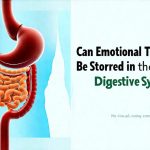The interplay between our emotional state and physical wellbeing is increasingly recognized as profound and bidirectional. For centuries, feelings were often dismissed as ‘just in your head’, but modern science reveals a far more integrated system where emotions aren’t confined to cognitive processes. They manifest physically, influencing everything from heart rate and breathing to immune function and digestion. This article delves into the fascinating connection between our emotional experiences and the gut – an area increasingly understood as not just responsible for processing food, but also for holding and responding to deeply ingrained emotional memories and reactions. It’s a realm where past traumas, unresolved anxieties, and even subtle stresses can leave lasting imprints on our physical health.
The gut isn’t merely a digestive organ; it’s a complex ecosystem often referred to as the ‘second brain’. This is due to its own intrinsic nervous system – the enteric nervous system (ENS) – which operates somewhat independently from the brain, yet communicates constantly with it via the vagus nerve. The ENS contains millions of neurons and influences gut motility, secretion, and even immune function. Furthermore, the gut microbiome, the trillions of bacteria residing within us, plays a crucial role in modulating our emotional state, influencing neurotransmitter production like serotonin (often dubbed the ‘happy hormone’) and impacting stress response systems. This complex interplay means that emotions can literally get stuck in the gut, manifesting as physical symptoms or contributing to chronic health issues. Understanding how gut microbiome diversity impacts overall wellbeing is a key step towards healing.
The Gut-Brain Connection: A Two-Way Street
The connection between the brain and the gut isn’t a one-way street; it’s a dynamic feedback loop. What happens in our brains directly affects our gut function, and conversely, what happens in our gut significantly influences our brain activity and emotional state. This bidirectional communication is facilitated by several key pathways: – The vagus nerve: As mentioned earlier, this cranial nerve acts as a direct line of communication between the gut and the brain, transmitting signals both ways. – The immune system: Gut health profoundly impacts the immune system, and chronic inflammation in the gut can trigger systemic inflammation that affects brain function. Simple ways doctors check for inflammation are crucial to understand. – Neurotransmitters: Many neurotransmitters, crucial for mood regulation, are produced in the gut. Disruptions to gut health can impact neurotransmitter levels, contributing to anxiety or depression. – The hypothalamic-pituitary-adrenal (HPA) axis: This system regulates stress response, and gut dysfunction can dysregulate the HPA axis, leading to chronic stress and emotional reactivity.
This intimate connection explains why we often experience “gut feelings” – that intuitive sense of unease or rightness. It also sheds light on why anxiety or stress can manifest as digestive issues like bloating, diarrhea, or constipation. The gut isn’t just reacting to emotions; it’s actively participating in their creation and processing. Understanding this connection is vital for holistic health, as addressing emotional wellbeing often requires paying attention to gut health and vice versa. For example, someone experiencing chronic anxiety might benefit from interventions that target both the nervous system (therapy) and the digestive system (dietary changes, probiotic supplementation under professional guidance). Learning how to interpret gut testing can provide valuable insight into your specific needs.
Emotional Storage in the Gut: How it Happens
The way emotions become ‘stored’ in the gut is multifaceted. It’s not about literal emotional memories being held within the intestinal walls, but rather a combination of physiological responses and neurological imprints. When we experience strong emotions – particularly those associated with trauma or chronic stress – our bodies initiate a cascade of hormonal and neural events. These events impact gut motility, blood flow, and microbiome composition. Repeated emotional experiences create habitual patterns in these physiological responses. – Visceral sensitivity can be altered: Chronic stress can make the gut more sensitive to stimuli, leading to heightened pain perception or discomfort. – Microbiome imbalances can develop: Stress hormones like cortisol can disrupt the delicate balance of the gut microbiome, promoting the growth of harmful bacteria and reducing beneficial ones. – Neural pathways are reinforced: Repeated emotional experiences strengthen neural connections in the brain that associate specific emotions with certain physical sensations in the gut.
This process essentially creates a physiological ‘memory’ of the emotion. Even years later, encountering similar triggers can reactivate these patterns, leading to physical symptoms or emotional flashbacks. The ENS also plays a key role here. It’s capable of independent learning and memory formation, meaning it can associate specific stimuli with particular responses without direct input from the brain. This explains why some people experience intense physical reactions to emotionally charged situations even if they aren’t consciously aware of the underlying connection. It is important to note that this isn’t about ‘blaming’ the gut, but rather understanding how our bodies naturally adapt and respond to emotional experiences. Recognizing lab markers used can help pinpoint specific issues.
Identifying Gut-Based Emotional Reactions
Recognizing when emotions are being held in the gut can be challenging, as the symptoms often present physically. However, there are several telltale signs: – Chronic digestive issues: Persistent bloating, constipation, diarrhea, or irritable bowel syndrome (IBS) could indicate unresolved emotional stress impacting gut function. – Visceral hypersensitivity: Experiencing excessive pain or discomfort in the abdominal area even with minimal stimulation. – Emotional flashbacks triggered by physical sensations: Feeling overwhelmed with anxiety or sadness when experiencing certain digestive symptoms. – Difficulty processing emotions: Having trouble identifying, expressing, or regulating your feelings. – A sense of tightness or constriction in the stomach or chest during stressful situations.
It’s also important to consider the context of these symptoms. Are they linked to specific past events or traumas? Do they worsen during periods of stress? If you suspect emotional reactions are manifesting physically, it’s helpful to keep a journal documenting your symptoms, triggers, and associated emotions. This can provide valuable insights for yourself and any healthcare professionals you consult. Self-awareness is the first step towards addressing these patterns. The role of gut health in food reactions should also be considered when identifying triggers.
Healing Emotional Imprints: Strategies for Support
Addressing emotional reactions stored in the gut requires a multifaceted approach that focuses on both emotional processing and gut restoration. – Psychotherapy: Exploring past traumas, unresolved conflicts, and negative thought patterns with a qualified therapist can help process emotions and release their hold on the body. Techniques like somatic experiencing or EMDR (Eye Movement Desensitization and Reprocessing) are specifically designed to address trauma stored in the nervous system and body. – Mindfulness practices: Cultivating mindfulness through meditation, yoga, or deep breathing exercises can promote emotional regulation and reduce stress levels. These practices help create space between stimulus and response, allowing you to observe your emotions without judgment. – Dietary changes: Adopting a gut-friendly diet rich in fiber, probiotics (from fermented foods or supplements – with professional guidance), and anti-inflammatory foods can support microbiome health and overall digestive function. Reducing processed foods, sugar, and artificial sweeteners is also crucial. – Stress management techniques: Implementing strategies like regular exercise, adequate sleep, and social connection can help buffer the effects of stress on both the brain and gut.
It’s important to approach healing with compassion and patience. Releasing deeply ingrained emotional patterns takes time and effort. Focusing on self-care and building a strong support system are essential components of this process. Remember that seeking professional guidance from healthcare professionals – therapists, registered dietitians, or functional medicine practitioners – can provide personalized strategies tailored to your specific needs. Strategic meal layers can also be a helpful part of the healing process. The journey towards healing isn’t about eliminating emotions; it’s about learning to navigate them with greater awareness, resilience, and self-compassion, ultimately fostering a stronger connection between mind, body, and gut.


















